One of the amazing things about living in the Bay Area is the easy access to locally grown and sustainably sourced ingredients. The region is home to many excellent food purveyors who practice sustainable agriculture and are also family-owned. Here in Marin, a hotbed of farm-fresh food and eco-friendliness, you don’t have to wander far to procure an aged farmstead cheese, organic European-style yogurt or a dozen eggs pasture-raised on a nearby farm.
Here, we’ve rounded up a few of our favorite, family-owned local businesses that have sprouted up right in our own backyard. While some companies remain mostly local, others have successfully grown into well-known brands whose products can be found nationwide. Even so, they remain environmentally focused, family-owned, and are headquartered right here in the Bay Area.
Straus Family Creamery
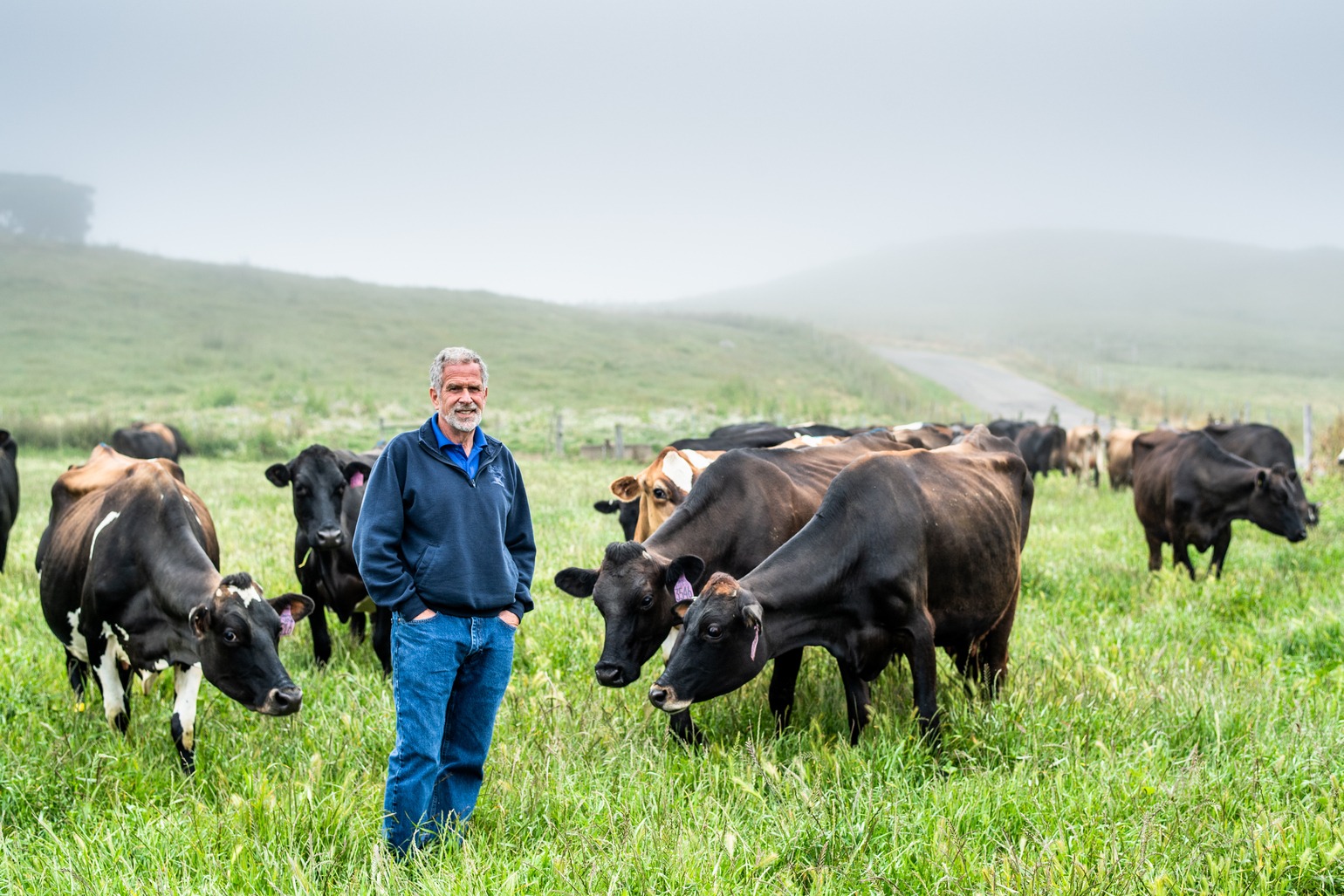
Albert Straus, founder and CEO of Straus Family Creamery, grew up on his parents’ dairy farm on the shores of Tomales Bay. His father started the dairy farm in 1941 with 23 Jersey cows. Protecting the land and the environment has always been at the heart of the company’s mission.
“I grew up with the same respect for the environment as my parents,” says Straus, whose parents were very early environmentalists in the 1940s. “In 1994, our dairy farm was the first certified-organic dairy west of the Mississippi, but we had stopped using herbicides and chemical fertilizers 10 years earlier and also implemented no-till planting of silage crops to minimize soil erosion and reduce diesel fuel consumption.”
Straus and his team are dedicated to using innovative methods to help reduce the farm’s climate impact. “We’re always trying to innovate and progress toward a better future that will help our local community and planet,” says Straus. “We’re a strong advocate for an organic farming and food system.”
Straus Family Creamery boasts a fleet of full-electric vehicles, and they’re actively pursuing ways to eliminate plastic packaging and implement carbon farming to improve soil health. Straus says his goal is to make the farm carbon-neutral by 2023, and the creamery’s supplying farms (12 total) all carbon-neutral by 2030.
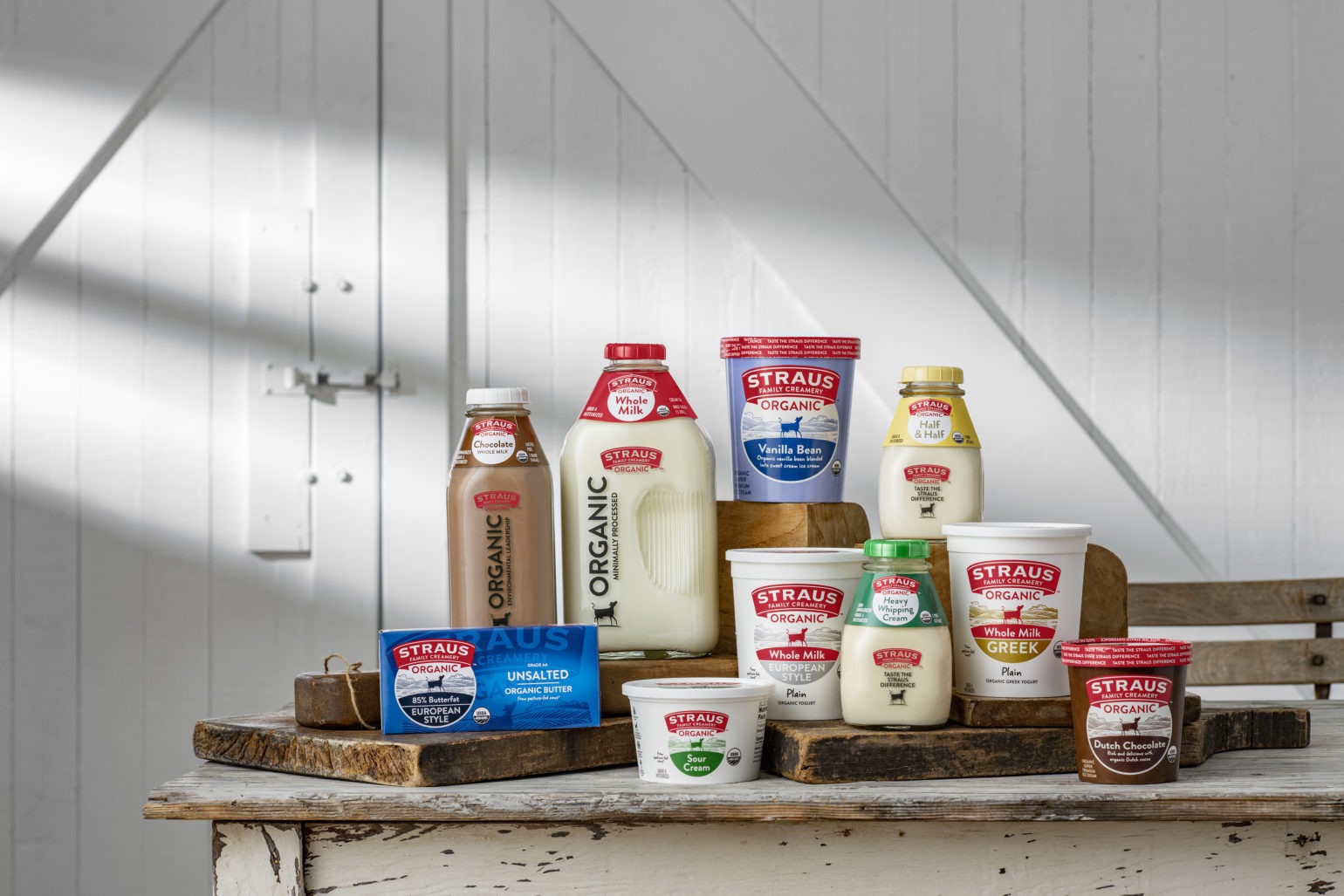
One of the more progressive agricultural methods the business uses on the farm is carbon capture. A methane biodigester captures the methane (a potent greenhouse gas) from the cows’ manure and transforms it into electricity. Operating since 2004, the methane digester provides enough renewable energy to power the entire dairy farm and charge Straus’ electric car and other farm vehicles. In 2020, the biodigester reduced methane emissions by more than 700 metric tons of CO2e — equivalent to eliminating the annual greenhouse gas emissions from about 150 passenger cars.
Straus Family Creamery also became the site of the first commercial trial of a new solution to reduce emissions of methane by adding red seaweed to cattle feed, which helps reduce emissions from cow burps. In the trial, methane emissions dropped by an average of 52 percent.
Today, Straus oversees the dairy farm, getting up early every morning before heading to the office to manage daily operations. “What I’ve tried to do is create a sustainable organic farming model that is good for the earth, the soil, the animals and the people working on these farms, and one that helps revitalize rural communities,” he says. “We need cows — they’re essential to our ecosystem, and farms have the potential to be a climate change solution.”
Straus Family Creamery dairy products, including ice creams, yogurt, butter and sour cream, are available at natural food co-ops, independent grocers and retailer chains such as Sprouts and Whole Foods Markets.
Stemple Creek Ranch

The history of Stemple Creek Ranch, nestled in the hills near Tomales, began more than a century ago when Angelo Poncia immigrated to the area from Italy and started a dairy in neighboring Fallon. The dairy he established thrived there for three generations. Today, Stemple Creek Ranch is proudly run by Angelo’s great-grandson Loren Poncia, and his wife, Lisa. They have reinvented the family business and now raise superior-quality grass-fed and grass-finished meats.
Loren grew up on his parents’ ranch and always assumed it would be his lifelong career and passion. After a brief stint in the corporate world after college, he moved back to Marin County to take over management of the ranch from his parents. Loren and Lisa began buying their own cattle and purchasing adjacent land. They decided on the name Stemple Creek Ranch.
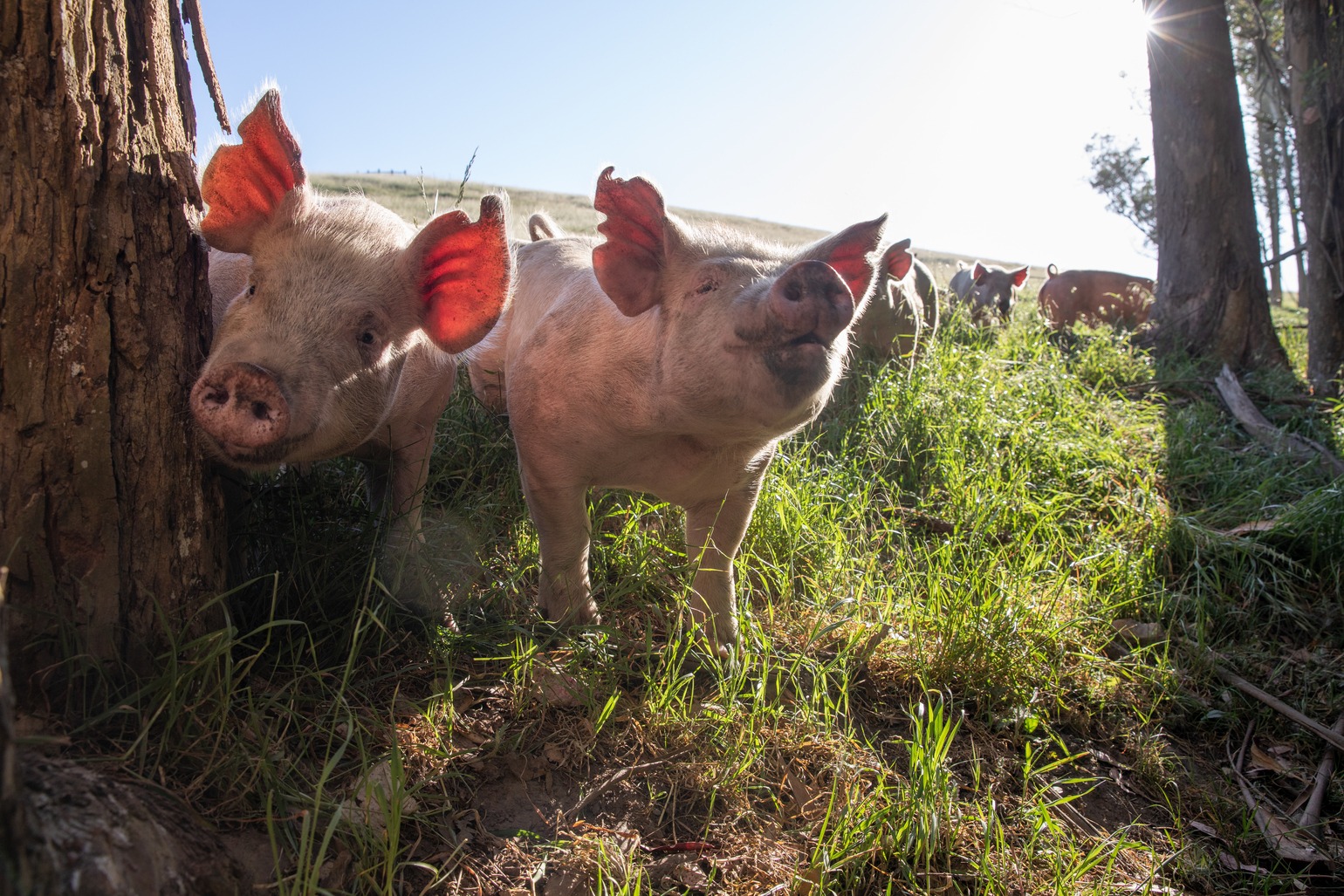
“We’ve tried hard to blend the generational knowledge of local agriculture with cutting-edge science to create a resilient business,” says Lisa, co-owner and general manager. “Every decision we make about how we manage our pastures and our animals is based on regenerative practices.”
This means they seek to enhance and rehabilitate the entire ecosystem by focusing on soil health and increasing carbon on their land. Their conservation efforts include maintaining and restoring natural watershed areas, utilizing cutting-edge solar and gravity-flow technology, and practicing an intensive schedule of rotational grazing.
The Poncias’ regenerative farming efforts are paying off. Today, the property is protected by a canopy of trees and has a minimum amount of erosion. Lisa says they can now raise more animals than in the past while bringing in much less off-site feed. Their pastures stay green long after neighboring pastures have turned. What’s more, the ranch is a biodiverse habitat, home to more than 50 species of birds, owls, ducks and bees, as well as foxes, bobcats, hawks and countless other animals.
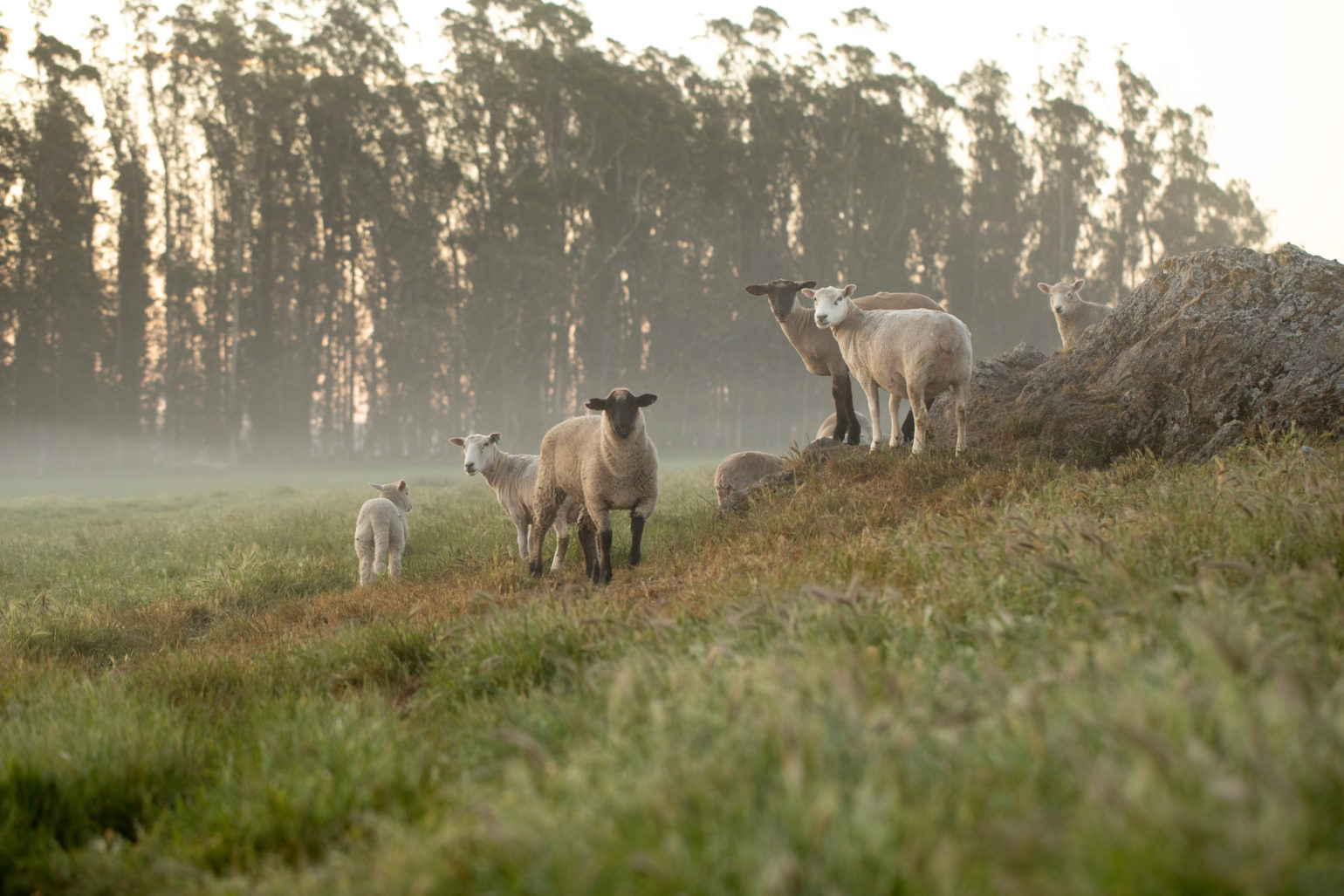
At more than 1,000 acres, Stemple Creek Ranch is 100-percent protected through the Marin Agricultural Land Trust (MALT) to ensure it will remain a productive part of the Marin County agricultural landscape forever. The Poncias’ daughters and their cousins will be the fifth generation to farm the land.
“Having a profitable and sustainable business in agriculture in Marin County feels like the biggest accomplishment,” says Lisa. “Anything else is just icing on the cake.”
Stemple Creek Ranch’s free-range beef and lamb are 100-percent grass-fed and grass-finished. The animals never see a feedlot or receive artificial hormones or antibiotics. You can find their products in locally owned grocery stores, butcher shops, restaurants, farmer’s markets and through their online store at stemplecreek.com.
Bivalve Creamery
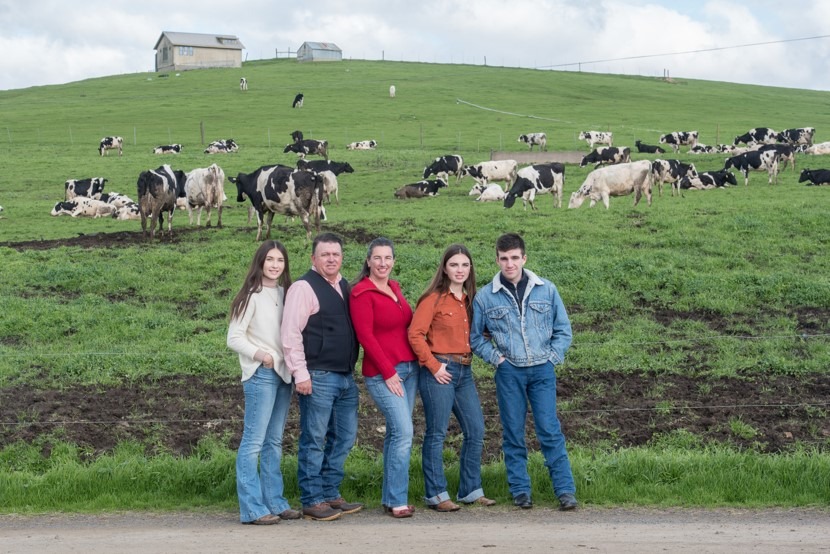
Point Reyes Station
You could say Karen Bianchini Taylor, owner of Bivalve Dairy, was destined to become a dairy farmer. The day she was born, her parents, Billy and Sharon, signed papers to purchase 160 cows. A year later, they moved to Bivalve and established the Bianchini Ranch and Bianchini Dairy Farm, two miles north of Point Reyes Station, where Karen grew up.
Fast-forward almost three decades to September 11, 2001. Karen was working as a teacher and her husband, John Taylor (?), was an engineer whose work took him all over the country. They realized they wanted a different lifestyle for their growing family; their oldest child was just five weeks old at the time. So, in 2006, they decided to return to Marin and take over the Bianchini Dairy Farm. Today they live, work and are raising their children at the Bianchini Ranch, home to the Bivalve Dairy cows.
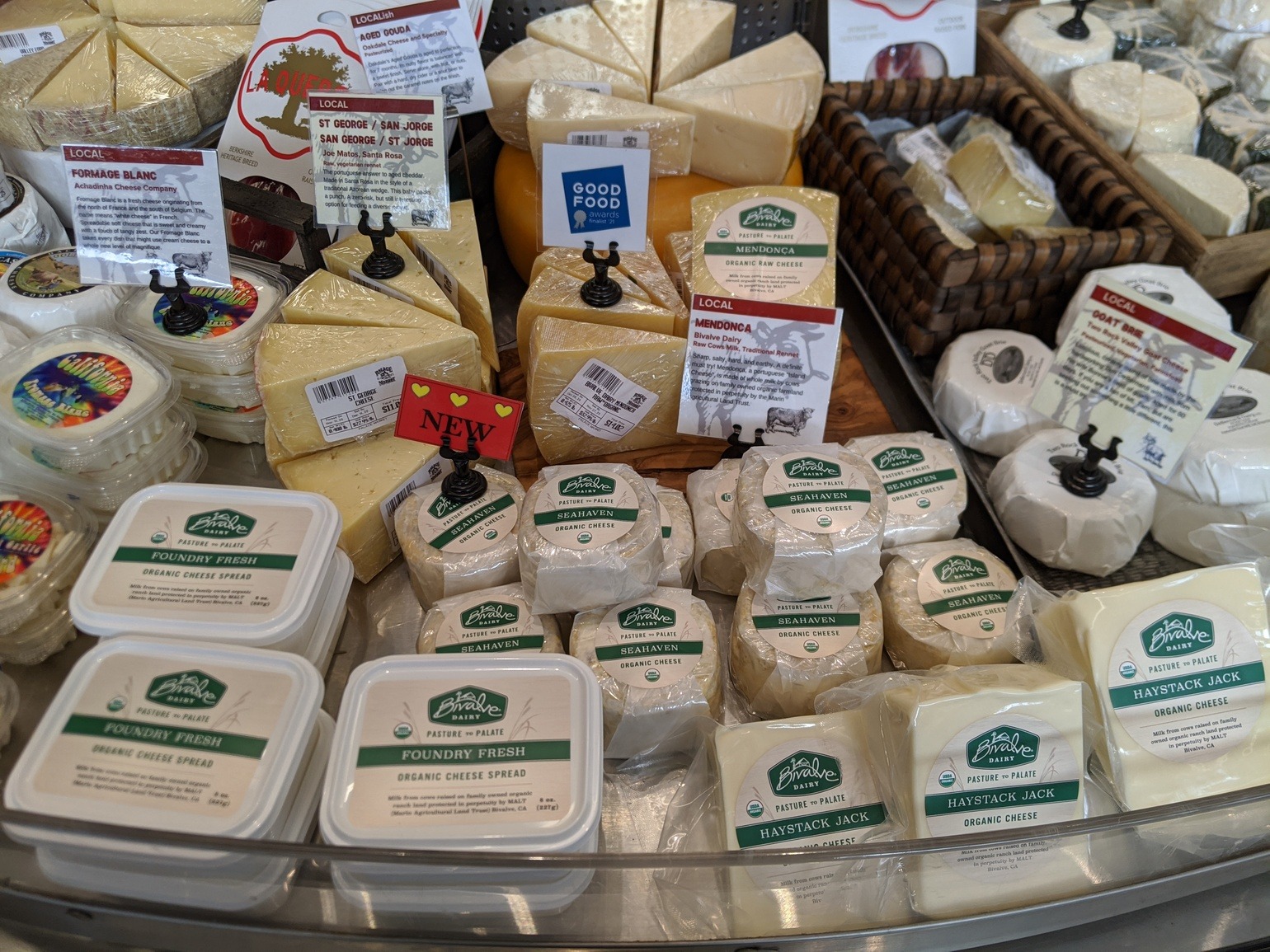
“The biggest advantage of being a family-owned business is that we get to spend time together as a family,” says Karen. “Our children are seventh-generation California dairy farmers, and they’re engaged in all aspects of the farm: feeding calves, milking cows, mowing grass, making cheese and butter, giving farm tours and selling at farmers’ markets.”
Karen and John have taken what began in 1973 and transitioned the herd and facility to an organic business operation – Bivalve Dairy was certified organic in 2006. The dairy thrives on environmentally friendly pasture management and grazing strategies. They are actively engaged in pilot programs and research with MIT and the California Department of Food & Agriculture (CDFA) aiming to reduce the carbon footprint and greenhouse emissions of dairy farms. John and Karen are also active in the community, leading 4-H groups, hosting school tours, contributing to Future Farmers of America, serving on the board of the Marin County Farm Bureau, and much more.
In 2018, they established Bivalve Creamery and have since churned out several scrumptious cheeses, including the award-winning Mendonca and Seahaven. Their hope is that the farm stays in their family for generations to come.
Bivalve products can be found at local farmer’s markets, Oliver’s, Palace Market, Petaluma Market, Tomales Bay Foods and Good Earth Natural Foods.
Nicasio Valley Cheese Company
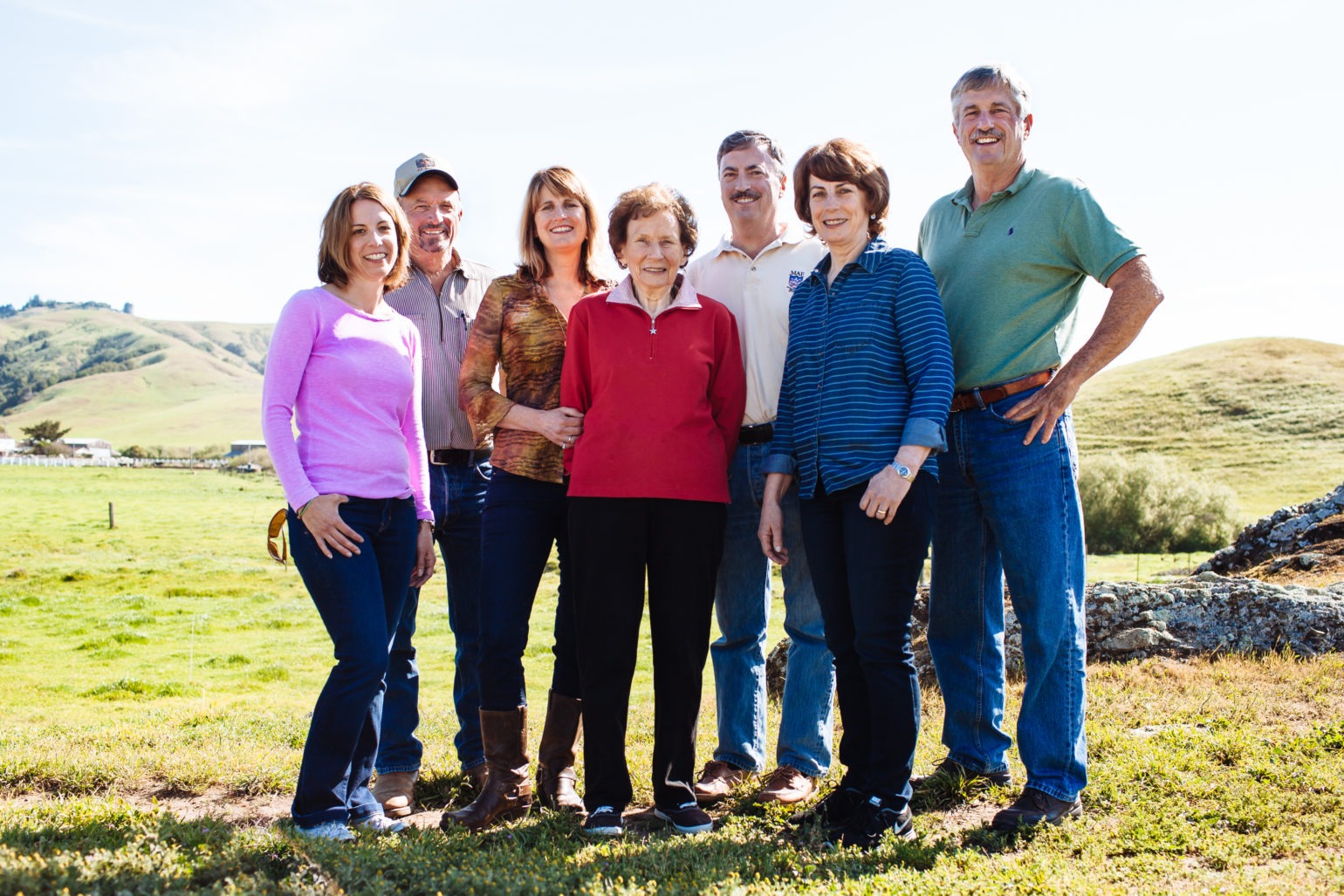
The Lafranchi Family
Nicasio Valley Cheese Company was established in 2010, but its roots trace back to 1919, when Fredolino Lafranchi immigrated to America from Maggia, Switzerland, at the age of 17 with the dream to one day own and operate his own dairy. He and his wife, Zelma Dolcini Lafranchi, established the Lafranchi Dairy nestled in the beautiful Nicasio Valley. Fred and Zelma raised their five children on the ranch. Their eldest son, Will, grandfather of the current owners, continued in the family business and raised his six children there.
The idea for the cheese business was first born in 1973 when the Lafranchi family visited the alpine village of Maggia. “During the trip we experienced a number of unique cheeses that were unlike anything we had tasted in the states,” says Rick Lafranchi, who co-owns Nicasio Valley Cheese Company with his brother, Scott. “We still remember our father suggesting that it would be great to make these cheeses on our Nicasio ranch one day. We were all very young at the time but never forgot his words.”
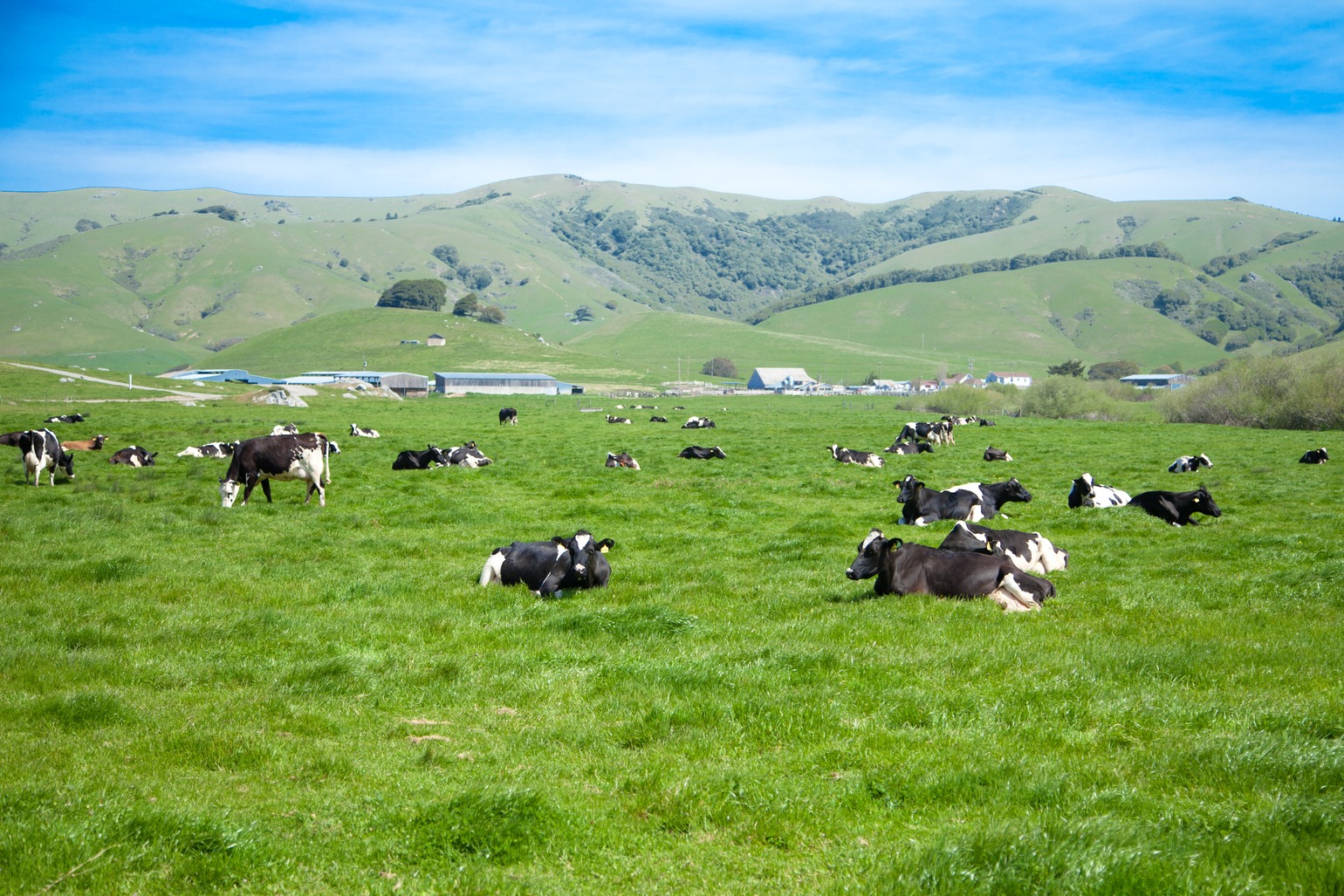
When Rick’s father passed away in 2002, the traditional dairy business was struggling. To continue the family business as a viable option for the next generation, they knew they must make a change. “Over the next eight years we studied, analyzed and developed our cheese company,” says Rick. “We visited Maggia again and met a master cheesemaker, Maurizio Lorenzetti, who mentored us. In March 2010, we made our first vat.”
Today, Nicasio Valley Cheese is made using authentic, traditional recipes from Maggia and fresh certified-organic milk from the Lafranchi Ranch, which is managed by their brother Randy Lafranchi. Several of their cheeses have been recognized globally, nationally and locally in various competitions, including the American Cheese Society, World Cheese Championships, California State Fair and Good Food Awards.
Comprising more than 1,000 certified-organic acres, the Lafranchi Ranch is home to hundreds of happy cows and 3,000 free-range chickens, who lay delicious eggs while consuming insects and leaving behind generous deposits of high-quality fertilizer. The Lafranchis are fully committed to sustainable agriculture on their dairy ranch: They use an on-site composting facility to reduce waste and fertilize pastures and practice rotational grazing methods to ensure the grass is used to the greatest benefit.
“This is our home,” says Rick, “and we are very proud of the quality of our operation and the family foundation that our business has been built on.”
Nicasio Valley Cheeses can be purchased online at nicasiocheese.com; at the creamery in Nicasio; at a number of local markets in Marin and Sonoma counties and San Francisco; and at local farmer’s markets.
CLIF Bar Company & Clif Family Winery
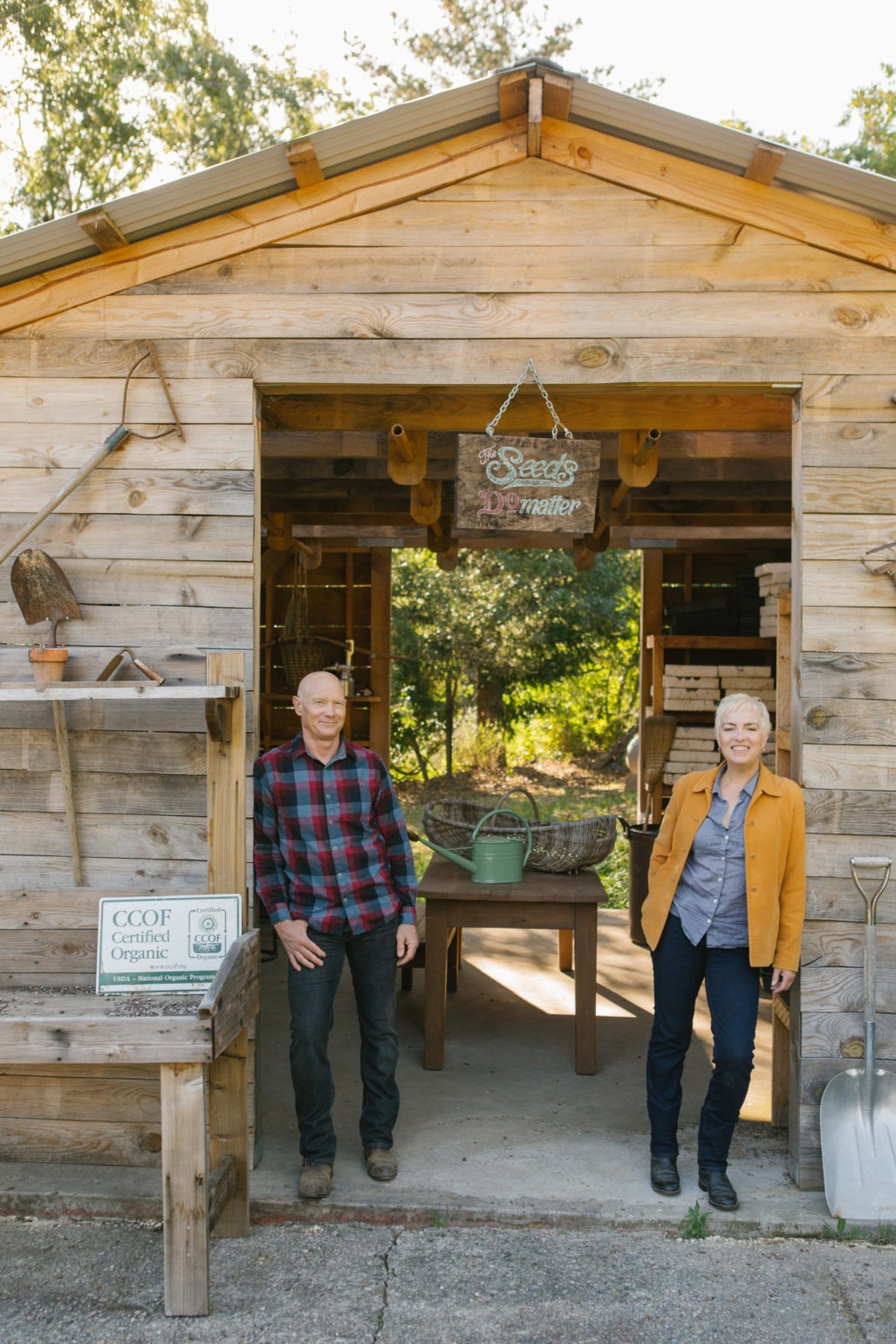
Emeryville and St. Helena
The story of CLIF Bar begins on a bike in 1990. Gary Erickson, a baker and avid outdoorsman, set off with a friend on a one-day, 175-mile bike ride. He took six energy bars along for the ride — the only bars available on the market at the time. “Halfway through the ride, I realized I couldn’t eat another unappetizing bar,” says Erickson. “I had an epiphany to create a better-tasting energy bar.”
After his “Epiphany Ride,” as it became known, Erickson began experimenting with recipes in his mom’s kitchen. Two years later, Erickson and his wife, Kit Crawford, created CLIF Bar & Company, named for Erickson’s father, Clifford, who introduced him to outdoor adventures and encouraged him to follow his passions. Today, Crawford and Erickson co-own the Emeryville-based company, along with all 1,100 CLIF Bar employees, who were made part owners in 2010.
“Being family-owned means that we have the nimbleness to make decisions quickly, and the opportunity to incorporate the things we value in our life into how we operate the business,” says Crawford. “We measure our success based on five bottom lines, not just one: to sustain our people, community, planet, brands and business.”
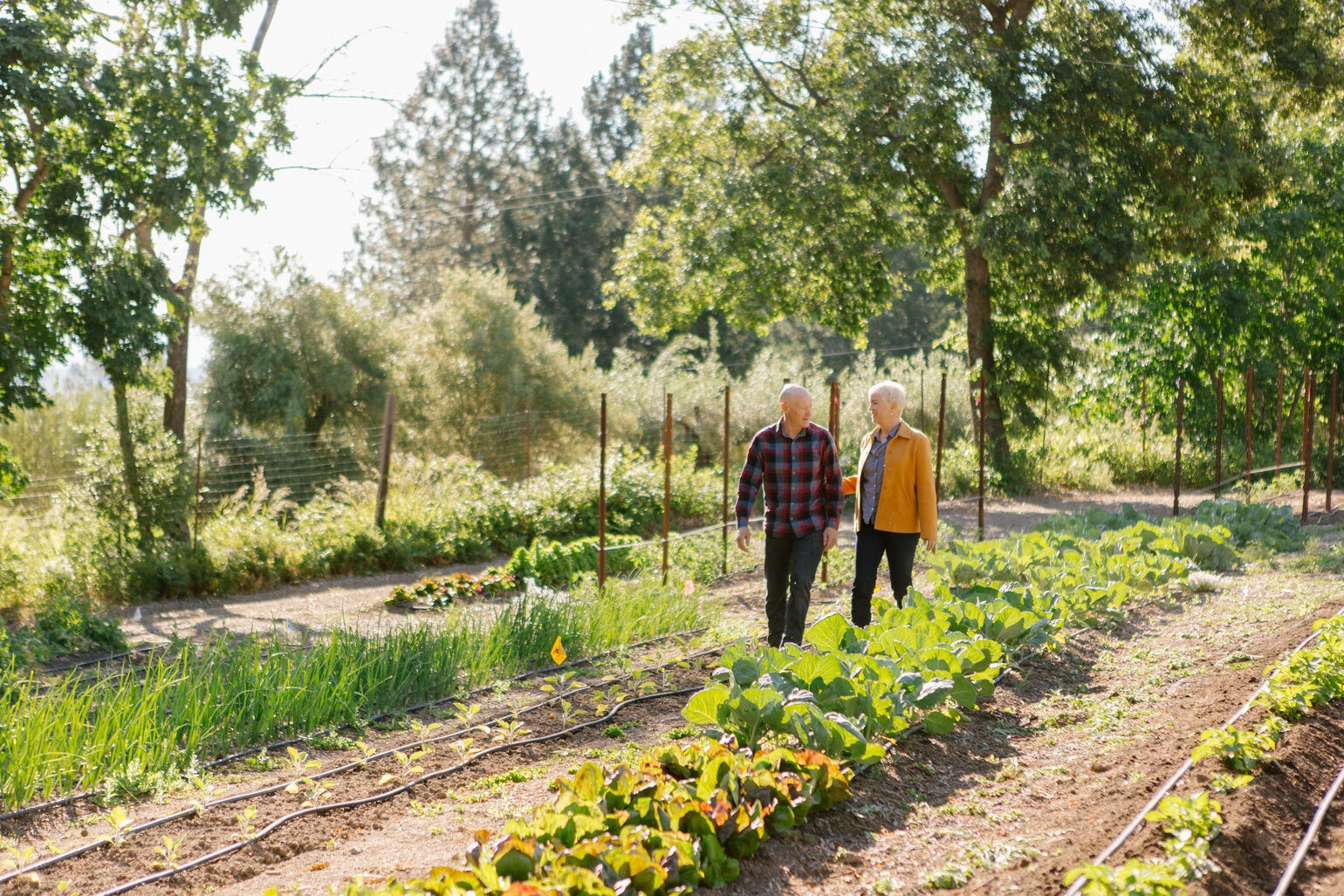
For the last two decades, CLIF Bar has prioritized organic, plant-based ingredients and supported sustainable agriculture. The company is committed to zero waste, green power and eco-friendly packaging. Erickson and Crawford decided to take the company organic in 2003, becoming the first energy bar to make an investment in organic. “We purchased 1 billion pounds of organic ingredients that year, even though it hurt our profits,” says Crawford. “But it was the right thing to do for people, farm communities and the planet.”
Giving back is also imperative for Crawford and Erickson: The company has donated more than 28 million energy bars to essential workers, food banks and communities in need, and they’ve donated more than $65 million to nonprofit organizations.
While CLIF Bars came first, there’s more to the CLIF company today than energy bars. Crawford and Erickson also own and manage Clif Family Winery & Clif Family Organic Farm, located in the Eastern Hills of Napa Valley. They had moved to Napa to raise their family, and soon found themselves exploring winemaking, organic farming and small food production. They now manage 90-acres of certified-organic vineyards and farm about 70 different crops on five acres of land, including fruit, citrus and olive trees; blueberries; and peppers.
For Crawford and Erickson, farming was a big part of both of their lives growing up, and they always knew they wanted to tend to vegetable gardens, fruit orchards and olive trees. Each week, a team harvests the crops and delivers them to executive chef John McConnell, who creates delicious, seasonal dishes for the farm-to-table Clif Family Bruschetteria Food Truck and the wine tasting menus at the Clif Family Tasting Room in St. Helena. Stop by and you’ll probably find Erickson behind the bar after a bike ride, drinking an espresso and chatting with the guests.
CLIF Bar products are sold at stores nationwide and online at clifbar.com. Visit cliffamily.com for more information about the Clif Family Winery.
More from Marin:
- The Gourmet Roots of Star Route Farm
- Meet the Farmer: Sierra and Blake Miller, Paradise Valley Produce
- Meet the Cheese Maker: Donna Pacheco, Achadinha Cheese Company

Carrie Ruehlman is a former magazine editor and communications professional turned freelance writer and editor. In her spare time, she enjoys spending time with her two daughters and husband, Michael. She also serves on the board of The Tiny Miracles Foundation.
